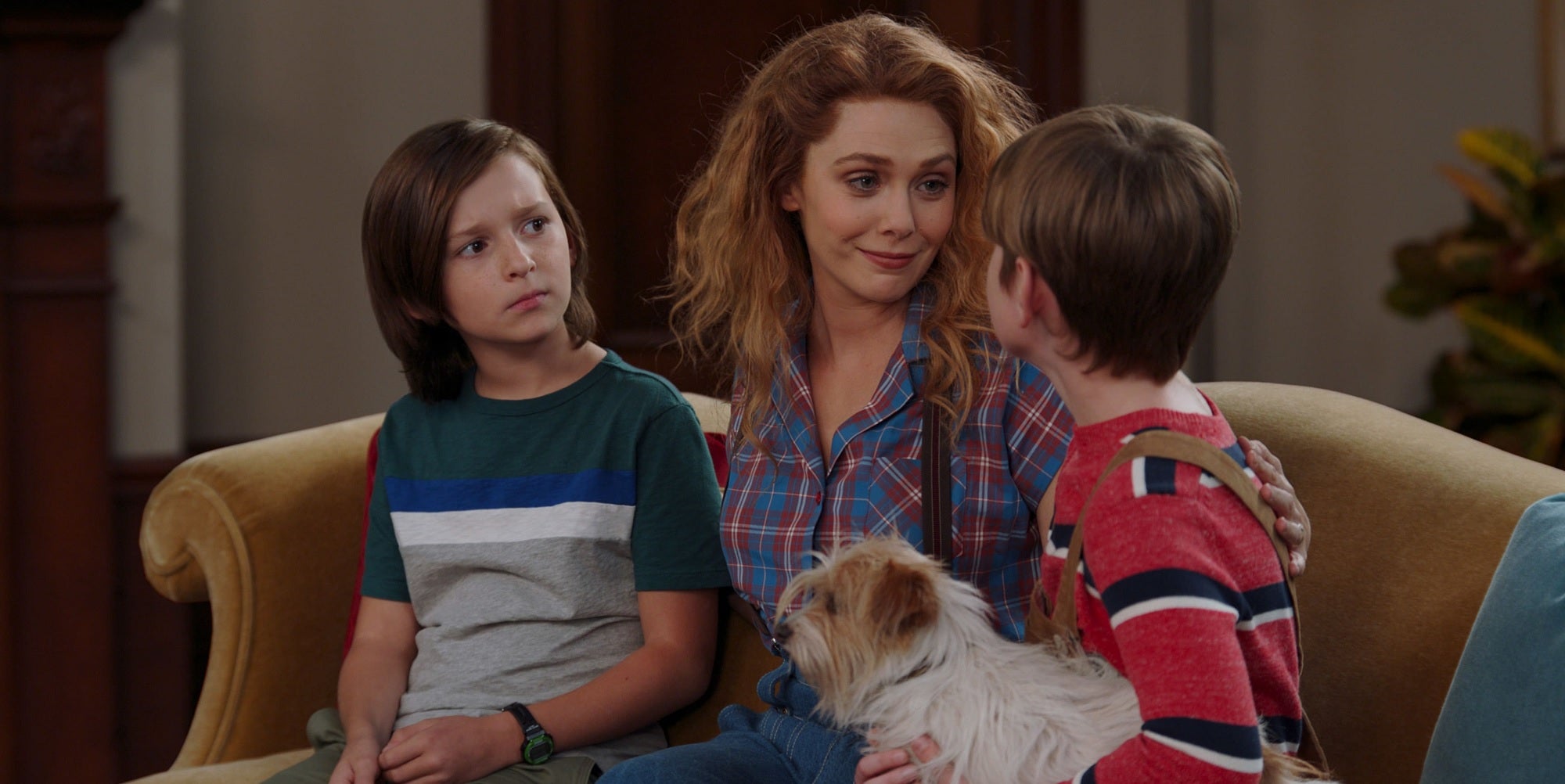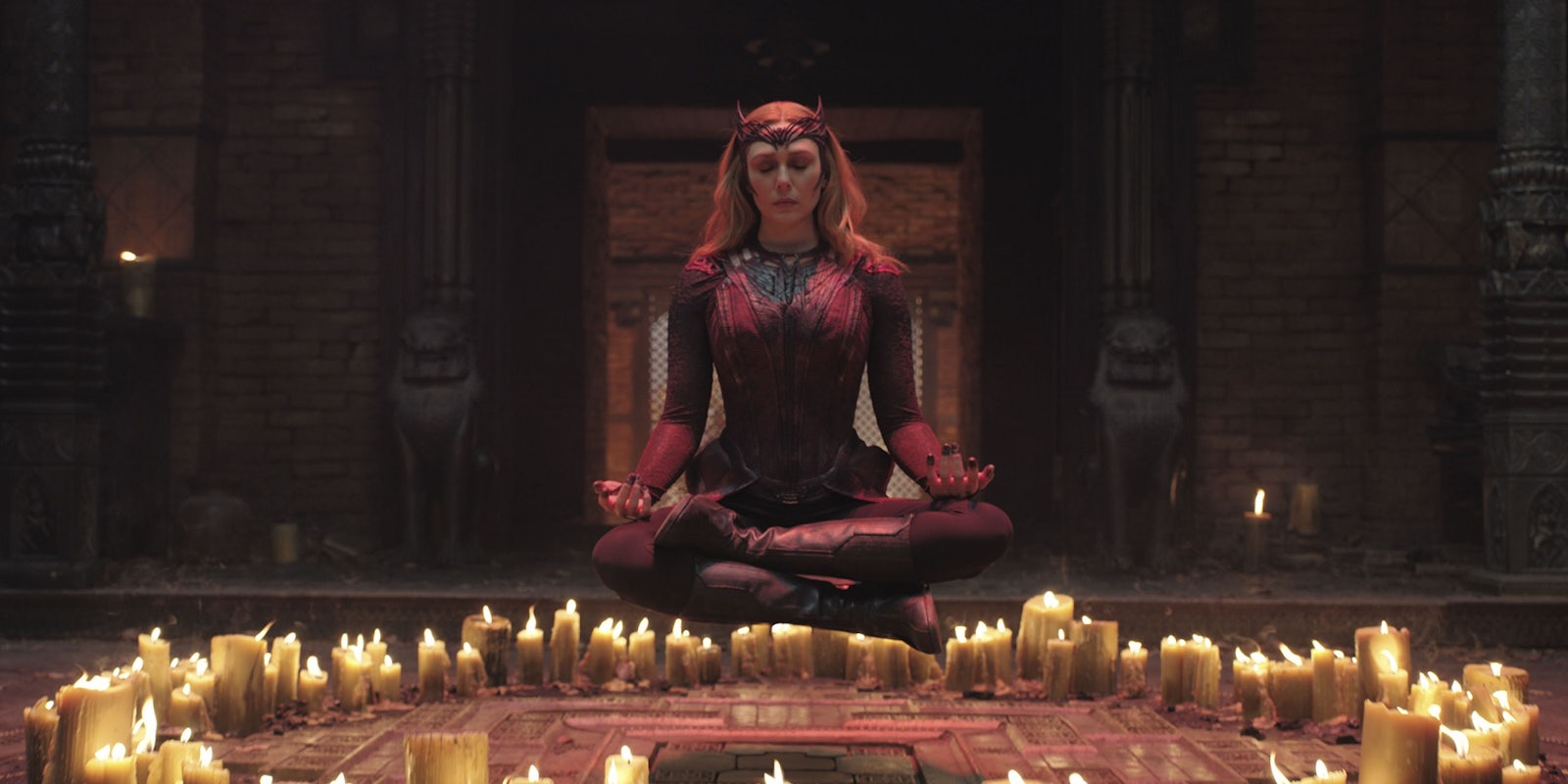This post includes spoilers for Doctor Strange in the Multiverse of Madness.
A while back, I wrote about the gendered contrast between Doctor Strange and Scarlet Witch’s magic powers in the MCU. Doctor Strange is academic and ambitious, gaining knowledge from a hierarchical secret society. Meanwhile Scarlet Witch’s abilities are instinctual and self-taught, rooted in trauma and exploitation. She often loses control due to emotional distress; a recurring theme in stories about women with unexpected superpowers.
Doctor Strange in the Multiverse of Madness rehashes this idea yet again, with lackluster results. In the wake of WandaVision, Wanda is grieving the loss of her sons Tommy and Billy, who she created by magic. (In real time, they only existed for a few days.) Desperate to get them back, she travels to other universes to steal alternate versions of her kids. This places her firmly in the supervillain zone; a heel-turn motivated by her violent, single-minded desire to be a mother.
The subtle sexism of Wanda’s motherhood arc
Obviously it’s not intrinsically sexist for a female character to be driven by familial love. In Wanda’s case, it makes sense for her to crave the comfort of domestic life. She grew up in a war zone, losing her parents at a young age. Then her brother Pietro died violently, followed by her boyfriend Vision.
Wanda’s desire for a happy family is the driving force behind WandaVision, where she creates a fantasy world inspired by American sitcoms. However the show concludes with her facing up to reality, setting the scene for a new arc… which Multiverse of Madness then uses to repeat the exact same emotional journey.
Not for the first time, Wanda’s latest storyline has troublesome undertones. Driven mad by maternal grief, her emotions are depicted as chaotic and dangerous, ultimately curtailed by Doctor Strange’s moral and rational superiority.

This overlaps with a structural problem: Multiverse of Madness requires a lot of MCU homework. For Scarlet Witch’s role to really make sense, you need to both remember and internalize her Sokovian origin story from Avengers: Age of Ultron (2015), and watch WandaVision. Without WandaVision, Tommy and Billy are nonentities.
The big-picture issue here is that Multiverse of Madness fails to tell a self-contained story. Many MCU fans would argue that’s fine, because the films now follow a semi-serialized narrative. However if you are invested in these multi-film arcs, you then have to ignore the elephant in the room. If Wanda can invade other universes to kidnap her kids, why not do the same for Vision and Pietro, a pair of characters with more emotional resonance for the audience?
The most likely explanation is that Marvel didn’t want Paul Bettany and Aaron Taylor-Johnson overcrowding the cast of Doctor Strange 2. But then we return to the original problem: Wanda’s emotional journey is incoherent, founded on sexist ideas about women and power.
Why can’t Scarlet Witch just be a villain?
In order to position Scarlet Witch as the antagonist, Multiverse of Madness screenwriter Michael Waldron used motherhood as an easy shortcut for her to go mad and bad. In doing so, he played into some recurring double standards in the MCU. The dad Avengers (Hawkeye, Ant-Man, Tony Stark) get to have positive relationships with their kids, while Black Widow angsts over her infertility and Wanda has a series of cataclysmic breakdowns.
If we’re going to recast Wanda as the bad guy, why does she have to be miserable and tormented? Can’t she be a fun, cool villain? Her neverending pain highlights the limits of the MCU’s image of female empowerment. Disney is very proud of Captain Marvel, an inspiring action hero whose role doubles as American military propaganda. The franchise is less certain of what to do with an edgier character like Scarlet Witch.
Instead of giving Wanda a villain arc where she (and we) can revel in her powers, she’s forced to suffer once again, concluding in a scene where she weeps in repentance because she can’t be a suburban mom. Elizabeth Olsen is doing her best here, but Multiverse of Madness‘ problems are baked into the script.


